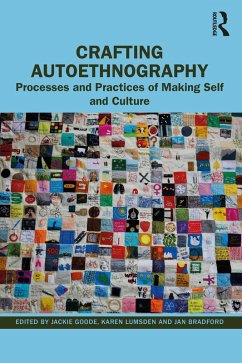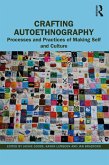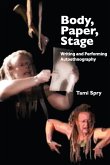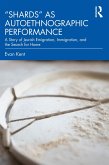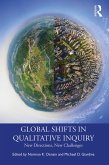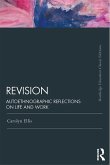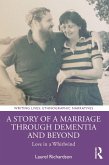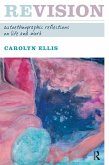Theoretically, this book seeks to rectify the hierarchical separation of art and craft and of intellectual and practical cultural production, by collapsing distinctions between knowing and making. In relation to connections between personal experience and wider social and cultural phenomena, contributors address a variety of topics such as social class, family relationships and intergenerational transmission, loss, longing and grief, the neoliberal university, gender, sexuality, colonialism, race/ism, national identity, digital identities, indigenous ways of knowing/making and how these are 'storied', curated and presented to the public, and our relationship with the natural world. Contributors also offer insights into how the 'crafting space' is itself one of intellectual inquiry, debate, and reflection.
This is a core text for readers from both traditional and practice-based disciplines undertaking qualitative research methods/autoethnographic inquiry courses, as well as community-based practitioners and students. Readers interested in creative practice, practitioner-research and arts-based research in the social sciences and humanities will also benefit from this book.
Dieser Download kann aus rechtlichen Gründen nur mit Rechnungsadresse in A, B, BG, CY, CZ, D, DK, EW, E, FIN, F, GR, HR, H, IRL, I, LT, L, LR, M, NL, PL, P, R, S, SLO, SK ausgeliefert werden.
Tom Fisher, Professor of Art and Design, Nottingham Trent University, UK
"This is a wonderful book! The go-to text on theorising, making/doing and reflecting on autoethnography in current times. A richly textured collection that is rooted in the history of the method and the importance of paying attention to the multifaceted ways we can work with personal and professional experience."
Maggie O'Neill, Professor in Sociology, University College Cork, Ireland
"This fascinating collection of intertwined and evocative autoethnographic creations is a welcome addition to a developing auto-methodological literature. In contrast to existing works, it offers readers grounded and rich insights into the art and crafting of autoethnographic making. It succeeds in drawing us in to the lifeworlds of autoethnographic creators."
Jacquelyn Allen-Collinson, Professor Emerita in Sociology & Physical Cultures, University of Lincoln, UK

